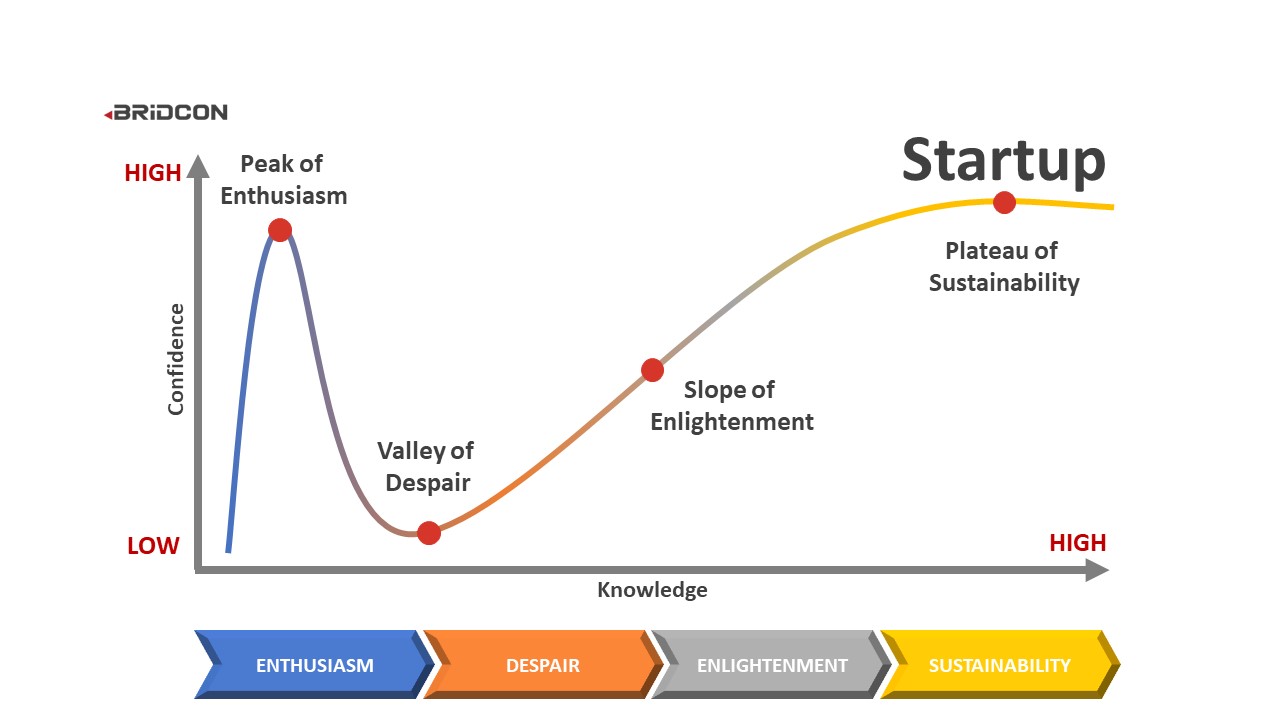4 Stages Of Learning
Recently I have been catching myself forgetting good material & failing to recall the content I have learnt, I realized I did not understand the “understanding-cycle” I go through when I get exposed to knew information nor what it takes for me to turn what I just learnt / read into a skill.
The process I detail here is the stages we go through while transforming newly acquired knowledge into a skill. It is abit new to me too but I did the research to find a process that can help us break this forgetfulness & ease the imposter syndrome.
The Dunning-Kruger:
This is the effect in which people with limited competence in a particular domain overestimate their abilities. Some of the cause of this psychological phenomena include inflated ego, working / learning in stressful environment, learning without practice or active feedback of progress & having a huge gap between learning and applying a skill, either way, this tends to cause individuals to [over / under] - estimate their abilities in a subject or activity.

Some of its negative impact includes closing doors in your career because you fail to produce results your claimed to be able to produce, your credibility drops, self respect & confidence will be affected from reality and how people around you treat you, but lets discuss the solution to this issue.
Stage 1: Unconscious Incompetence:

In this stage, you are unaware of your lack of knowledge or skill. You may not even realize that there is something you don't know.
At this point of learning the objective is to get familiar with the material, building foundational understandings or memory hooks. Hooks - are ideas, or things you already know that are similar / different in association with the new subject of interest
You want to be able to explain it & the fundamentals, what it means to you and other people.
Learn the fundamentals of the subject apply those first!.
Learn the problem solved by the subject or tool knowing the solution but failing to understand the problem is not good.
Learn when, where and to whom it's relevant & how much those matter to you. This is important because you want to associate what you learning to what you already know, because long term memory is about how a thing relates to what you know.
Sleep well in the days when you are learning new things, sleep is when the mind connects new information with other relevant information.
‘The goal is to understanding what we don't know at this point’
Stage 2: Conscious Incompetence:

In this stage, you become aware of your lack of knowledge or skill. You may feel frustrated or embarrassed by your shortcomings.
To build solid understanding we need to apply the subject or tool to where its relevant & associated through practice.
We want to use the learnt process to solve the problems. This is attempt an to build long term memory on the subject. -This can start with taking notes on each chapter of the book you reading & turning the lesson into action / instructions.
Find resources to learn quicker or better. Tools to practice what you know.
Associate with masters or peers in the field “you need guidance & feedback when practicing” & humility as my friend in @show your work says explains.
Use learning methods like PACER to build longer memory for the material.
The goal is to develop the knowledge or skill you need to move to the next stage & cover what you realized you still lack confidence in.
Stage 3: Conscious Competence:

In this stage, you have the knowledge & skill, but you have to consciously think about it in order to use it. You may make mistakes or need to concentrate hard to perform the task.
At this stage we getting experiential understanding of what's going on realistically with the subject.
I really believe in having a coach or advisor to rate progress n product quality.
Find mentor or pay for one and also grade your growth only a mentor knows what to learn, what really matters.
Go to platforms like upwork & start looking for small tasks you can do on the subject to get paid.
I personally think at this stage you want to solidify your brand & sell your skills or learnt experience.
The goal is to become more proficient in the knowledge or skill so that you can use it without thinking too much about it.
Stage 4: Unconscious Competence:

In this stage, you have mastered the knowledge or skill to the point where you can use it automatically without having to think about it. You are able to perform the task with ease and confidence.
You have mastered the subject teach it to others.
Regulate & delegate those around you applying the skill you already know & have applied.
Create business around what you know or find way to consult on the subject.
Work on your personal & business brand.
Grow money paid for the efforts you give.
The goal to maintain your level of competence and continue to learn and grow.
Conclusion:
The Dunning Krugger effect is a psychological phenomena that will take over your judgment about your skillset and the possibilities in your career and personal life. If you do not take actions to work around it or at least see the effects in your life, you will always be below the standards you have set for yourself and that's not such a good place to be.
